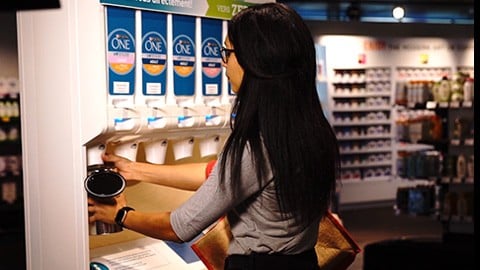Nestlé is committed to the highest possible standards of farm animal welfare and strongly condemn any mistreatment of farm animals across our global supply chain.
Our Commitment on Farm Animal Welfare (pdf, 2Mb) includes a pledge to phase-out concerning practices, based on the World Organization for Animal Health’s (OIE’s) ‘Five Freedoms’, which we work to promote in our global supply chain.
All Nestlé suppliers must follow our Responsible Sourcing Standard (pdf, 2Mb), which lays out our sourcing requirements for meat, poultry and egg products and dairy.
Nestlé has signed a global collaboration agreement with Compassion in World Farming to help drive improvements in our sourcing and to encourage broader supply chain transformation.
In October 2018, we were a founding member of the Global Coalition for Animal Welfare (GCAW), whereby we work with a range of other companies to improve animal welfare standards globally.
Specific pledges involve:
- Only using cage-free eggs for all Nestlé food products globally by 2025. This includes all shell eggs and egg products (e.g. whole egg powder and liquid and egg white powder and liquid) that we directly source as ingredients.
- Transitioning to cage-free eggs only for our food products by 2020 in the U.S. and Europe.
- Improving broiler chicken welfare (by 2024 in the U.S. and 2026 in Europe).
What progress have you made switching to cage free eggs?
Nestlé is committed to directly purchasing eggs from cage-free hens only for its food products globally by 2025.
As of April 2021, we now directly purchase 100% cage free eggs for our food products in Europe and the United States.
60% of the eggs purchased directly by Nestlé Canada for use in our food products come from cage free sources and we remain on track to reach 100% by 2025 as per our global commitment.
Does your broiler chicken pledge also apply to Canada?
Yes, all of the chicken purchased directly by Nestlé for use in our food products in Canada falls within the scope of the existing broiler chicken welfare commitment in the United States as it is imported in the form of finished goods.







